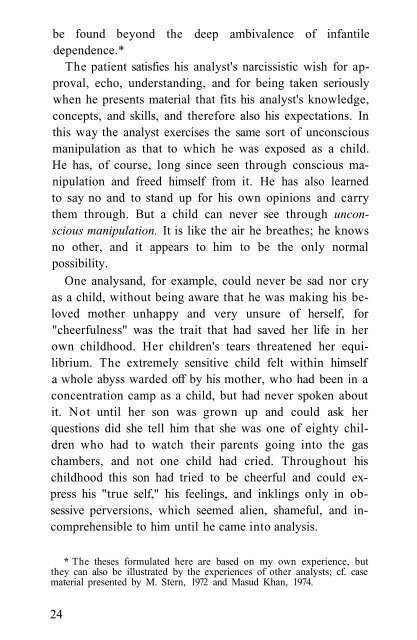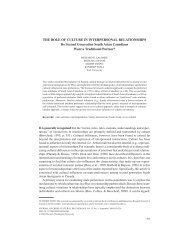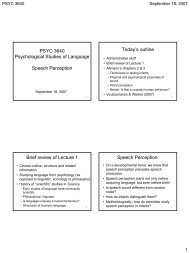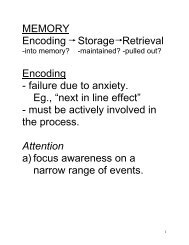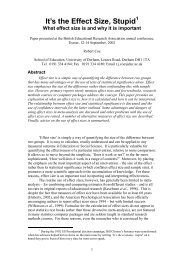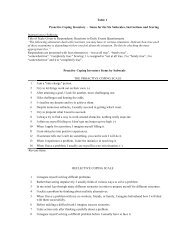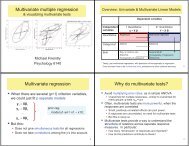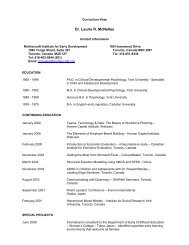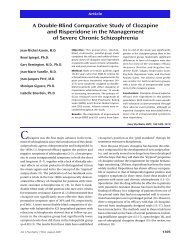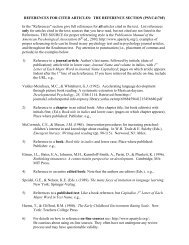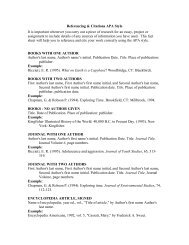The Drama of the Gifted Child (The Search for the True Self)
The Drama of the Gifted Child (The Search for the True Self)
The Drama of the Gifted Child (The Search for the True Self)
You also want an ePaper? Increase the reach of your titles
YUMPU automatically turns print PDFs into web optimized ePapers that Google loves.
e found beyond <strong>the</strong> deep ambivalence <strong>of</strong> infantile<br />
dependence.*<br />
<strong>The</strong> patient satisfies his analyst's narcissistic wish <strong>for</strong> approval,<br />
echo, understanding, and <strong>for</strong> being taken seriously<br />
when he presents material that fits his analyst's knowledge,<br />
concepts, and skills, and <strong>the</strong>re<strong>for</strong>e also his expectations. In<br />
this way <strong>the</strong> analyst exercises <strong>the</strong> same sort <strong>of</strong> unconscious<br />
manipulation as that to which he was exposed as a child.<br />
He has, <strong>of</strong> course, long since seen through conscious manipulation<br />
and freed himself from it. He has also learned<br />
to say no and to stand up <strong>for</strong> his own opinions and carry<br />
<strong>the</strong>m through. But a child can never see through unconscious<br />
manipulation. It is like <strong>the</strong> air he brea<strong>the</strong>s; he knows<br />
no o<strong>the</strong>r, and it appears to him to be <strong>the</strong> only normal<br />
possibility.<br />
One analysand, <strong>for</strong> example, could never be sad nor cry<br />
as a child, without being aware that he was making his beloved<br />
mo<strong>the</strong>r unhappy and very unsure <strong>of</strong> herself, <strong>for</strong><br />
"cheerfulness" was <strong>the</strong> trait that had saved her life in her<br />
own childhood. Her children's tears threatened her equilibrium.<br />
<strong>The</strong> extremely sensitive child felt within himself<br />
a whole abyss warded <strong>of</strong>f by his mo<strong>the</strong>r, who had been in a<br />
concentration camp as a child, but had never spoken about<br />
it. Not until her son was grown up and could ask her<br />
questions did she tell him that she was one <strong>of</strong> eighty children<br />
who had to watch <strong>the</strong>ir parents going into <strong>the</strong> gas<br />
chambers, and not one child had cried. Throughout his<br />
childhood this son had tried to be cheerful and could express<br />
his "true self," his feelings, and inklings only in obsessive<br />
perversions, which seemed alien, shameful, and incomprehensible<br />
to him until he came into analysis.<br />
* <strong>The</strong> <strong>the</strong>ses <strong>for</strong>mulated here are based on my own experience, but<br />
<strong>the</strong>y can also be illustrated by <strong>the</strong> experiences <strong>of</strong> o<strong>the</strong>r analysts; cf. case<br />
material presented by M. Stern, 1972 and Masud Khan, 1974.<br />
24


